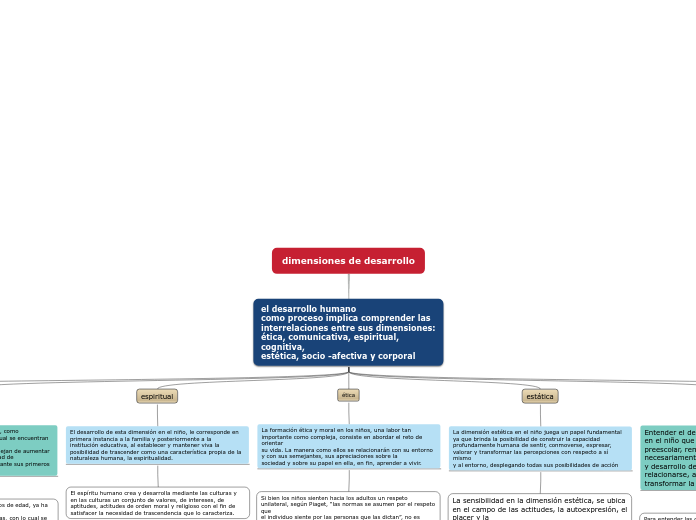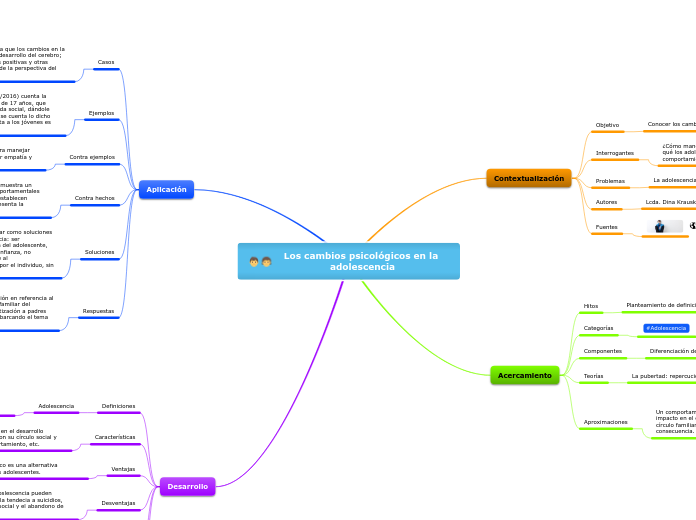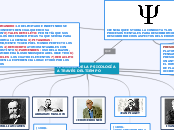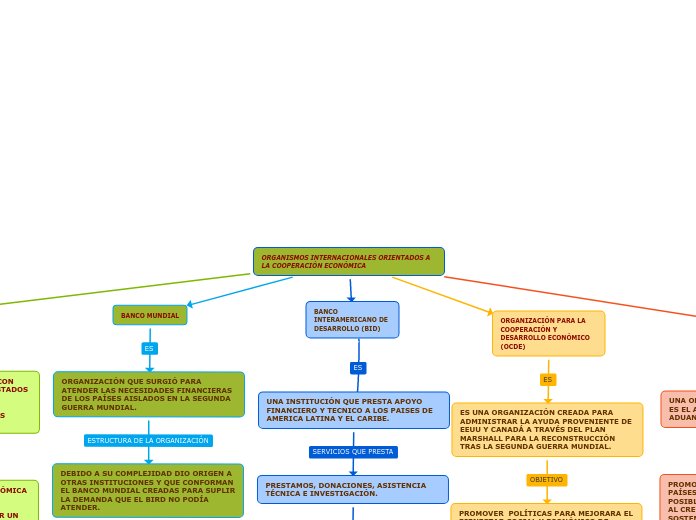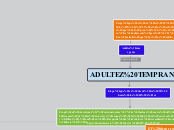dimensiones de desarrollo
Type in the name of the multiple-perspectives text.
Example: Bridge to Terabithia by Katherine Paterson
el desarrollo humano
como proceso implica comprender las interrelaciones entre sus dimensiones: ética, comunicativa, espiritual, cognitiva,
estética, socio -afectiva y corporal
Identify an important issue from the text that is being presented from different angles. Type it in.
Example: Jesse's drawing talent.
comunicativa
Decide on the fourth point of view
Type in the name of the last character whose perspective on the issue you are going to present.
Example: Leslie Burke, Jesse's new next-door neighbor, and best friend.
La dimensión comunicativa en el niño está dirigida a expresar conocimientos e ideas sobre las cosas, acontecimientos y
fenómenos de la realidad; a construir mundos posibles; a establecer relaciones para satisfacer necesidades, formar
vínculos afectivos, expresar emociones y sentimientos.
Point of view
Type in a relevant quote that highlights the character's point of view. Try to follow a citation format: author's name, chapter, and page.
Example: I can't get the poetry of the trees,' he said. She nodded. Don't worry,' she said. You will someday. He believed her.' (Paterson, 4. 24)
La dimensión comunicativa en el niño está dirigida a expresar conocimientos e ideas
sobre las cosas, acontecimientos y fenómenos de la realidad
How is the viewpoint introduced in the story?
Choose an answer:
First person point of view - using the personal pronouns 'I' or 'we'Second person point of view - using the personal pronoun 'you'Third person point of view - using the third-person pronouns 'he', 'she' and 'they'Omniscient point of view - an all-seeing observer tells the story
cognitiva
Whose character does the third point of view belong to?
Type in his/her name.
Example: Mr. Aarons, Jesse's father.
Entender el desarrollo de la dimensión cognitiva en el niño que ingresa al nivel de educación preescolar, remite
necesariamente a la comprensión de los orígenes y desarrollo de la gran capacidad humana para relacionarse, actuar y
transformar la realidad.
What does the character think, say or do that suggests their perspective on the issue?
Type in a quote and try to maintain the citation format.
Example: 'He would like to show his drawings to his dad, but he didn't dare. (...) He'd thought his dad would be pleased. He wasn't. What are they teaching in that damn school? he had asked.' (Paterson, 2.8)
Para entender las capacidades cognitivas del niño de preescolar, hay que centrarse en lo que éste sabe y hace en cada
momento, su relación y acción con los objetos del mundo y la mediación que ejercen las personas de su contexto
familiar, escolar y comunitario para el logro de conocimientos en una interacción en donde se pone en juego el punto de
vista propio y el de los otros, se llega a cuerdos, se adecúan lenguajes y se posibilita el ascenso hacia nuevas zonas de
desarrollo.
What kind of narration introduces the viewpoint?
Choose an answer:
First person point of view - using the personal pronouns 'I' or 'we'Second person point of view - using the personal pronoun 'you'Third person point of view - using the third-person pronouns 'he', 'she' and 'they'Omniscient point of view - an all-seeing observer tells the story
estática
La dimensión estética en el niño juega un papel fundamental ya que brinda la posibilidad de construir la capacidad
profundamente humana de sentir, conmoverse, expresar, valorar y transformar las percepciones con respecto a sí mismo
y al entorno, desplegando todas sus posibilidades de acción
La sensibilidad en la dimensión estética, se ubica en el campo de las actitudes, la autoexpresión, el placer y la
creatividad que encierra un compromiso, entrega, gratuidad y no obligatoriedad.
ética
La formación ética y moral en los niños, una labor tan importante como compleja, consiste en abordar el reto de orientar
su vida. La manera como ellos se relacionarán con su entorno y con sus semejantes, sus apreciaciones sobre la
sociedad y sobre su papel en ella, en fin, aprender a vivir.
Si bien los niños sienten hacia los adultos un respeto unilateral, según Piaget, “las normas se asumen por el respeto que
el individuo siente por las personas que las dictan”, no es menos cierto que el adulto puede empezar a establecer unas
relaciones más recíprocas con los niños donde se intercambien puntos de vista, se reconozcan errores, se busquen soluciones, propiciando así el desarrollo de la autonomía.
espiritual
El desarrollo de esta dimensión en el niño, le corresponde en primera instancia a la familia y posteriormente a la
institución educativa, al establecer y mantener viva la posibilidad de trascender como una característica propia de la
naturaleza humana, la espiritualidad.
El espíritu humano crea y desarrolla mediante las culturas y en las culturas un conjunto de valores, de intereses, de
aptitudes, actitudes de orden moral y religioso con el fin de satisfacer la necesidad de trascendencia que lo caracteriza.
corporal
Decide on the second point of view
Name the character (it can either be the main character or one of the supporting characters) whose point of view you are presenting.
Example: Miss Edmunds, Jesse's music teacher.
En el transcurso de los años preescolares19, como consecuencia de su desarrollo físico, en el cual se encuentran las
estructuras óseo-musculares, los niños no dejan de aumentar regularmente su talla y peso, a una velocidad de
crecimiento más lenta de lo que ha sido durante sus primeros años de vida
Type in a quote that points out the character's position about the issue.
Try to follow a citation format: author's name, chapter, and page.
Example: 'She said he was unusually talented, and she hoped he wouldn't let anything discourage him.' (Paterson, 2. 8)
En el comienzo del preescolar, a los tres años de edad, ya ha concluido la fase
fundamental de mielinización de las neuronas, con lo cual se está en condiciones de realizar actividades sensoriales y de coordinación de manera mucho más rápida y
precisa.
How is the viewpoint introduced in the story?
Choose an answer:
First person point of viewSecond person point of viewThird person point of viewOmniscient point of view
socio-afectiva
Decide on the first point of view you are going to present.
Type in the name of the character (it can either be the main character or one of the supporting characters) whose point of view belongs to.
Example: Jesse Oliver Aarons, Jr., the main character of the novel, a fifth-grader living in a rural Southern area.
La comprensión de la dimensión socio-afectiva hace evidente la importancia que tiene la socialización y la afectividad en
el desarrollo armónico e integral en los primeros años de vida incluyendo el periodo de tres a cinco años.
Type in a relevant quote that highlights the character's point of view towards
el desarrollo humano
como proceso implica comprender las interrelaciones entre sus dimensiones: ética, comunicativa, espiritual, cognitiva,
estética, socio -afectiva y corporal.
Try following a citation format: author's name, chapter, and page.
Example: 'Jesse drew the way some people drank whiskey. (...) Lord, he loved to draw. (...) When he was in first grade, he told his father that he wanted to be an artist when he grew up.' (Paterson, 2. 7)
El desarrollo socio-afectivo en el niño juega un papel fundamental en el afianzamiento de su personalidad, autoimagen,
autoconcepto y autonomía, esenciales para la consolidación de su subjetividad, como también en las relaciones que
establece con los padres, hermanos
What type of narration introduces the viewpoint?
Choose an answer:
First person point of view - using the personal pronouns 'I' or 'we'Second person point of view - using the personal pronoun 'you'Third person point of view - using the third-person pronouns 'he', 'she' and 'they'Omniscient point of view - an all-seeing observer tells the story
